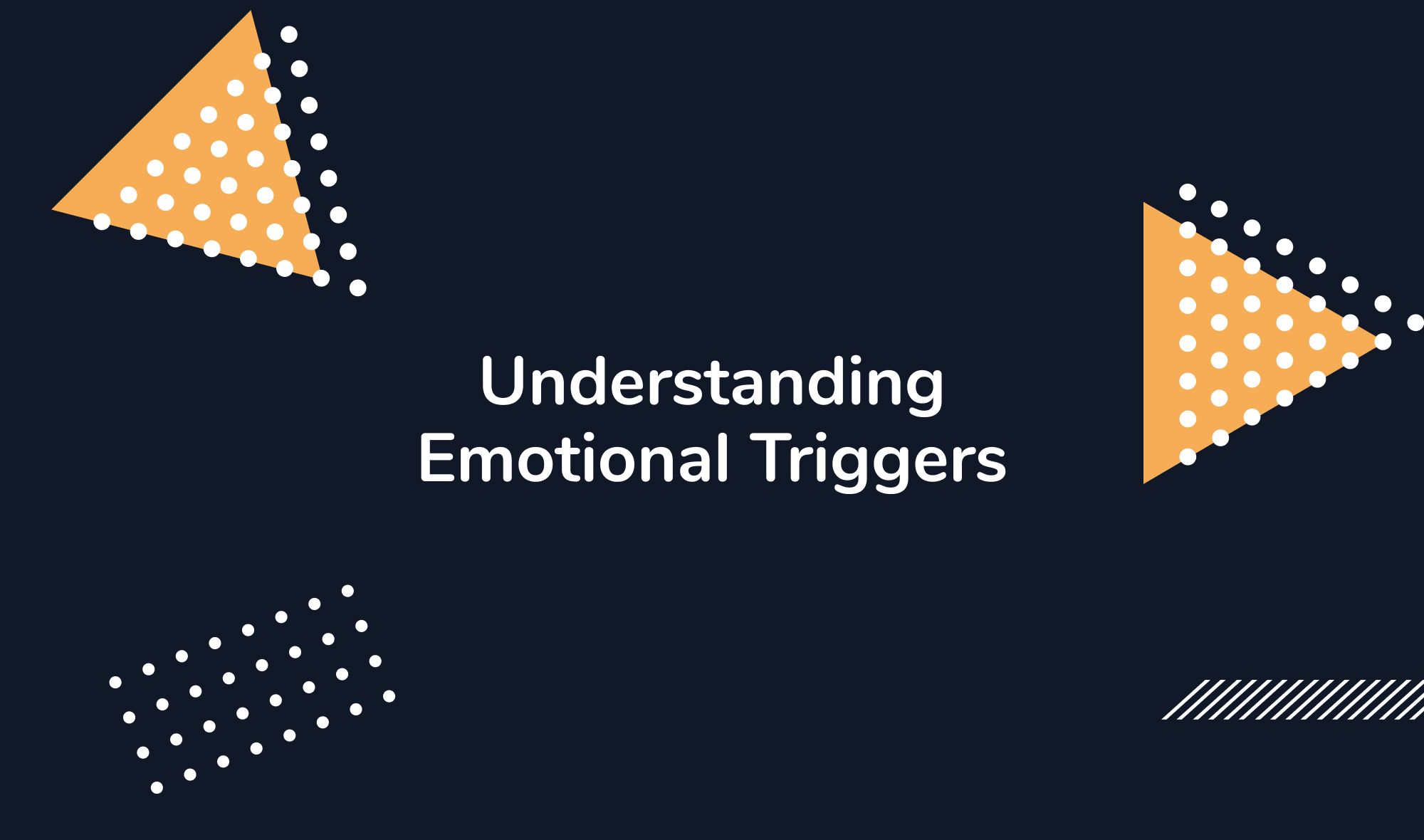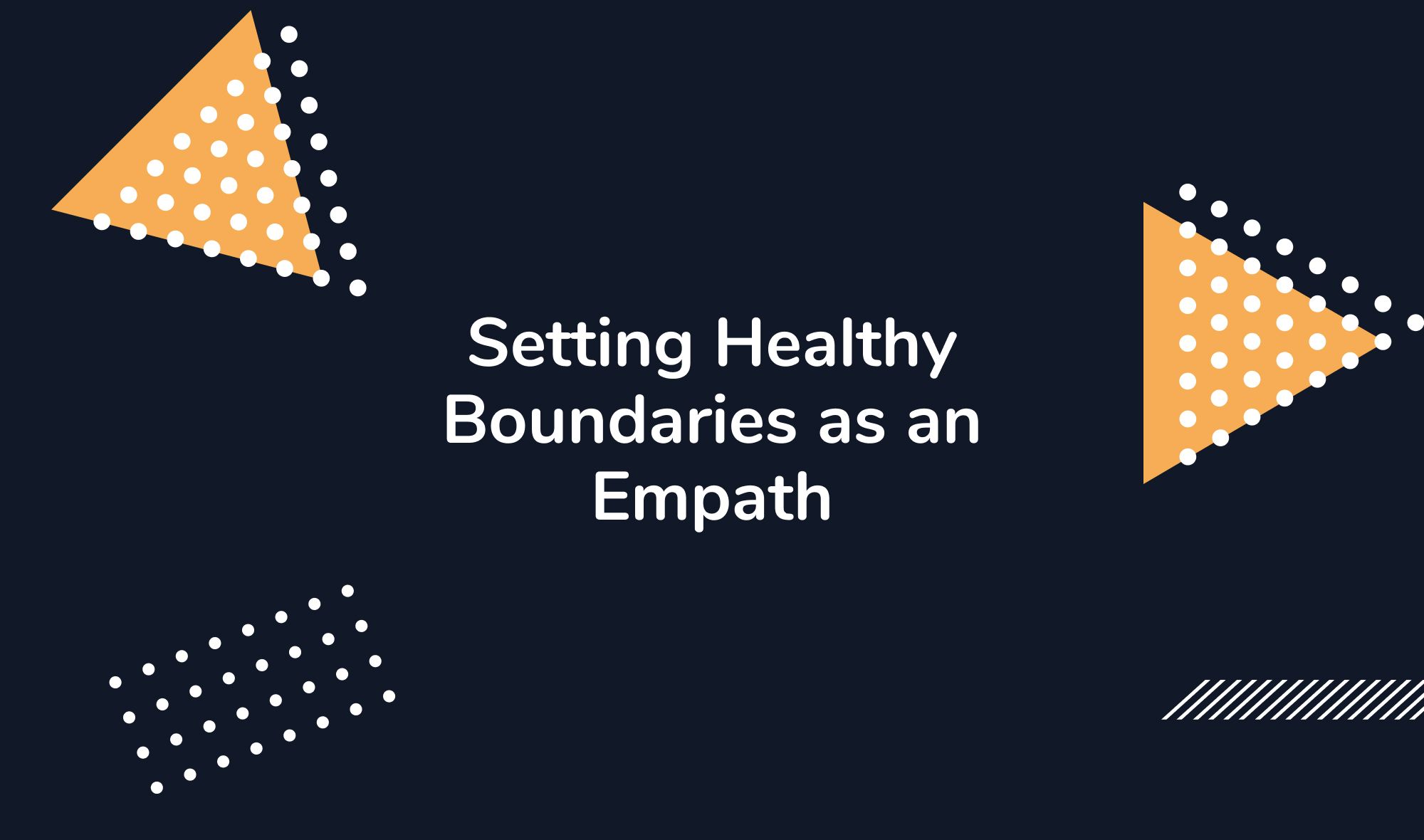Understanding Emotional Triggers for Empaths: A Deep Dive
By Marco Franzoni • July 14, 2023
Key Takeaways
- Empaths experience deep emotional responses and can feel others' emotions intensely.
- Understanding emotional triggers is key to managing empathic sensitivities.
- Empaths need to set healthy boundaries and prioritize self-care and alone time.
- Resources like books and coaching services can support empaths on their journey.

Imagine walking into a room and instantly feeling an undercurrent of emotion that isn't your own. You're attuned to the moods of others, a natural nurturer sensitive to the emotional states around you. If you find yourself often experiencing this, you could be part of a unique group of individuals known as empaths.
Empaths are not simply people who express empathy; they are individuals who have an heightened level of sensitivity to others' emotions. They possess the unique ability to comprehend and absorb the emotional states of those around them, often to the point where it can become overwhelming. This keen sensitivity to empathy can make empaths particularly susceptible to emotional triggers.
These triggers can catalyze intense emotional responses, stirring feelings that might seem inexplicable or out of proportion. However, understanding these triggers and learning how to manage them is a vital part of living as an empath, ensuring one's emotional health and well-being.
In this article, we'll dive into the world of empaths, emotional triggers, and provide tools and strategies to navigate this empathetic journey. So if you've ever wondered, "how can I know if I'm an empath?" or "how can I better manage my emotions?", keep reading. We'll explore these topics and more, providing a road map for those highly empathetic persons on their quest for emotional balance and self-awareness.
Join our Newsletter
Transform your career with our personal growth insights. Get one valuable tip right in your inbox every Saturday morning.
Identifying as an Empath
As an individual, understanding your identity is a powerful tool for self-awareness. When it comes to being an empath, understanding who you are involves recognizing your unique sensitivity to the emotions of others. However, identifying as an empath can be tricky, especially if you're unfamiliar with the signs. So, how can you know if you're an empath?
The telltale signs of an empathd often involve strong emotional reactions to the experiences of others. Empaths are known for their ability to "feel" the emotional atmosphere of a room or the mood of a person, even without any overt indicators. This can manifest in various ways, such as feeling suddenly drained when around a highly anxious individual, or experiencing a wave of sadness when someone nearby is grieving. It's as if you're absorbing others' emotions, and these intense emotional responses can often lead to emotional exhaustion.
In order to delve deeper into your self-awareness as an empath, we recommend exploring our comprehensive guide that can assist you in understanding your emotional responses and their potential triggers.
Interestingly, there's another group of individuals who might find themselves relating to these experiences - the Highly Sensitive Persons (HSPs). HSPs are characterized by their enhanced sensory processing and deeper cognitive processing, which make them highly responsive to environmental and social stimuli. Their sensory overload, especially in crowded spaces or environments with intense noise levels, mirrors some of the experiences of empaths.
However, while there is an overlap, being an empath and being a highly sensitive person are not the same thing. The key difference lies in the type of sensitivity experienced. While HSPs are notably sensitive to physical stimuli (like light, sound, and physical touch), empaths are distinct for their acute sensitivity to emotional stimuli. Empaths are not just sensitive to the feelings of others, they can actually feel these emotions as if they were their own.
Understanding this difference is key to identifying whether you are a highly sensitive person or an empath, and how you interact with your environment and the people around you. Recognizing your unique emotional landscape paves the way for better emotional self-care and helps set effective empath boundaries.
Understanding Emotional Triggers

Emotional triggers, as the name suggests, are situations, behaviors, or even memories that provoke a strong emotional response within us. These responses can be positive or negative, but when we talk about triggers in the context of mental health, we are usually referring to those which incite distress or discomfort.
According to the insightful book "Triggers: Creating Behavior That Lasts", emotional triggers are deeply personal and specific to each individual, and they have a profound impact on our behavior. They can cause us to react in ways we don't understand and can make us feel out of control.
For empaths, understanding emotional triggers becomes even more significant. Given their natural sensitivity to empathy, empaths experience heightened emotional responses, often stemming from their tendency to absorb others' emotions. This makes empaths more susceptible to emotional triggers, especially those related to the emotions of others.
For instance, if an empath is in a room with someone who is feeling anxious, even if they weren't feeling that way initially, they might find themselves experiencing symptoms of anxiety. This response is more than mere empathy — it's as though they've 'caught' the other person's feelings. It's like being an emotional sponge, absorbing others' emotions and sometimes taking them on as their own.
This process, while it can foster deep connection and understanding, can also lead to emotional exhaustion. Just as a sponge can only hold so much water, an empath can only hold so much emotional weight before it becomes too heavy. Therefore, it is crucial for empaths to understand their own emotional triggers, as well as those they might absorb from others, in order to manage their emotions effectively and maintain their mental health.
The Challenges of Being an Empath

Being an empath or a highly empathetic person certainly has its benefits. The ability to understand and share the feelings of others can lead to deep connections and can be an asset in many professional and personal situations. However, this heightened sensitivity also comes with challenges. Among these, the experiences of empathy fatigue, emotional exhaustion, and sensory overload are significant.
Empathy fatigue is a common occurrence for empaths. Due to their tendency to absorb others' emotions, they often find themselves emotionally drained. This is not to be confused with compassion fatigue, which is a condition characterized by emotional and physical exhaustion leading to a diminished ability to empathize or feel compassion for others, often seen in caregiving professions. While they share similarities, the key difference lies in the outcome: compassion fatigue can lead to an emotional numbness, while empathy fatigue can result in an overload of emotions.
Closely tied to empathy fatigue is emotional exhaustion. Empaths can become overwhelmed by absorbing the emotions of others, like an emotional sponge that has absorbed too much. This can be especially true in situations where they are surrounded by negative emotions, which can be heavy and difficult to process. This emotional exhaustion can sometimes lead to burnout, making it essential for empaths to recognize their limits and practice self-care.
Another challenge for empaths is sensory overload. Empaths, due to their heightened sensitivity, are often more susceptible to becoming overwhelmed by their environment. Crowded spaces, loud noises, or intense emotional environments can trigger this overload, leading to stress, anxiety, or fatigue. In our blog post, "Navigating the Path to Mental Fitness: Strategies and Benefits", we explore how managing your sensory input and environment can play a crucial role in mental fitness, especially for empaths.
Recognizing these challenges is the first step towards managing them. In the next sections, we'll explore strategies for empaths to manage their emotions and set boundaries for healthier emotional interactions.
Setting Healthy Boundaries as an Empath

A significant aspect of managing the challenges that come with being an empath is setting healthy boundaries. Recognizing and respecting one's emotional limits is crucial in preventing empathy fatigue and emotional exhaustion. This involves learning to "self-regulate" and manage your emotions effectively.
Understanding empath boundaries entails knowing when to separate your emotions from those of others, allowing you to empathize without absorbing others' feelings. Setting these boundaries can also involve making decisions about how you spend your time and with whom, and being mindful of environments that could trigger sensory overload.
Join our Newsletter
Transform your career with our personal growth insights. Get one valuable tip right in your inbox every Saturday morning.
A key component of setting boundaries is self-awareness. Empaths must be able to identify and understand their emotions and reactions. By increasing your self-awareness, you can recognize when you are absorbing others' emotions and act to protect your emotional health. Developing self-awareness isn't always easy, but it's an invaluable tool in managing empath tendencies. Our previous article on self-awareness offers deeper insights into this essential skill.
The tendency of empaths to absorb others' emotions can often lead to them feeling like an "emotional sponge". This can be especially challenging in situations with intense emotions, such as grief or conflict. Learning to control this absorption is essential to prevent emotional overload. Techniques for combatting this behavior can include grounding exercises, mindfulness practices, and even physical activity to help release absorbed energy.
Ultimately, setting boundaries as an empath isn't about limiting your empathy, but rather about ensuring you can empathize in a way that is healthy and sustainable for you. In the following section, we'll delve deeper into strategies for managing your emotions and practicing self-care.
Managing Your Emotions as an Empath

Mastering the art of emotional self-regulation is critical for empaths. Without the necessary strategies to manage their emotions, empaths can easily become overwhelmed by their sensitivity to others' feelings. Thankfully, there are effective techniques to help you manage your emotions and prevent empathy fatigue.
One highly recommended resource for understanding and managing emotional responses is the book, Triggered to Tranquil: From Self-Compassion to Transform Relationship. The book provides a comprehensive approach to understanding emotional triggers and offering strategies for managing emotional responses.
One of the central strategies discussed in the book is the practice of self-control. This involves identifying when you're beginning to absorb another's emotions and taking steps to manage this absorption. This can include techniques like grounding exercises, breathing techniques, and mindfulness practices that help you stay centered in your own emotional experience.
Another key concept for managing your emotions as an empath is emotional self-care. Emotional self-care involves regularly taking time to check in with your feelings, practicing stress-reducing activities, and ensuring you have emotional supports in place. It can also involve seeking support from a mental health professional if necessary. Emotional self-care isn't about avoiding or suppressing emotions but rather about managing them in a healthy and sustainable way.
In the next section, we will discuss the importance of self-care beyond managing emotions and explore some strategies that can be useful for empaths in maintaining their overall well-being.
The Role of Self-Care and Alone Time

Just as a physical workout is beneficial for the body, self-care practices are integral for mental and emotional well-being. For empaths, self-care is not just important—it's essential for maintaining balance and avoiding emotional exhaustion.
One of our previous blog posts discusses the role of self-care in unlocking employee resilience. While the post is specifically aimed at employees, the principles discussed can be applied by anyone—including empaths—to improve resilience and well-being.
Self-care for empaths extends beyond managing emotions—it's about prioritizing well-being and promoting mental health. This can mean different things for different people. For some, it might be daily exercise; for others, it might involve meditation, reading, or practicing a hobby they love. We discuss some strategies to prioritize well-being in our post, Why don't I feel like myself?.
An important part of self-care for empaths is alone time. Given their high sensitivity to others' emotions and sensory overload, empaths can benefit significantly from periods of solitude. Alone time is not just about isolation—it's about taking the opportunity to recharge and engage in introspection. It can be a sacred space where you reconnect with your own feelings and thoughts, free from external influence.
During alone time, you can practice mindfulness, journaling, or other self-reflection activities. This practice of solitude and introspection can provide a buffer against the intensity of feeling others' emotions, enabling empaths to recharge their emotional batteries and regain equilibrium.
In the next section, we'll wrap up our deep dive into understanding emotional triggers for empaths, summarizing the key points and offering some final thoughts.
Further Resources for Empaths

In this journey of understanding and managing emotional triggers, it's helpful to have resources that can provide further insights and guidance. One such resource is the book The Intuitive Empath: A Unique Guide on How Highly Sensitive People Can Heal Psychologically and Spiritually. This book offers a deeper exploration of what it means to be a highly empathetic person, providing strategies for managing sensitivity and utilizing it as a strength.
While self-help books can be extremely valuable, sometimes you might need more personalized support. That's where coaching can play a key role. At Zella Life, we offer both business coaching and personal coaching that can be tailored to your unique needs and challenges as an empath.
Our coaches can guide you in creating and implementing strategies for managing your emotions, setting healthy boundaries, and practicing self-care. With their support, you can not only navigate the challenges of being an empath but also leverage your empathetic abilities for personal and professional success.
For a deeper dive into the core domains of emotional intelligence, check out our detailed guide.
Conclusion
Embracing your identity as an empath or a highly sensitive person brings unique challenges, but it's important to remember that it also comes with its own set of strengths. Your deep capacity for empathy, your intense emotional responses, and your heightened sensitivity to others' feelings make you a beacon of compassion and understanding in a world that often lacks these qualities. Remembering these strengths can help you comfort someone who may be struggling, providing them with the empathy and understanding they need.
Understanding your emotional triggers is the first step to navigating your empathic sensitivities effectively. This, combined with setting healthy boundaries, managing your emotions, and prioritizing self-care and alone time, can empower you to lead a balanced life. Remember that sensory overload, empathy fatigue, and emotional exhaustion are not your constants, but challenges that you can overcome with awareness and proactive self-care.
Whether you're in the initial stages of identifying as an empath or have been navigating these waters for a while, remember to always respect your limits and prioritize your well-being. Being an empath is an integral part of who you are, but it doesn't define your entire existence. It's one thread in the beautiful tapestry of your individuality.
As you continue your journey, lean into the wealth of resources available to support you. From insightful books like The Intuitive Empath: A Unique Guide on How Highly Sensitive People Can Heal Psychologically and Spiritually to personalized coaching services offered at Zella Life, there are many avenues to guide and enrich your journey as an empath.
Let's navigate this empathic journey together, transforming our sensitivities into our greatest strengths.
Read more about: Well-being, Life Coaching